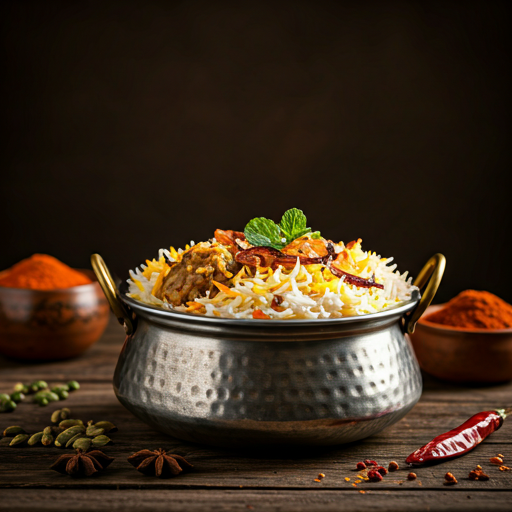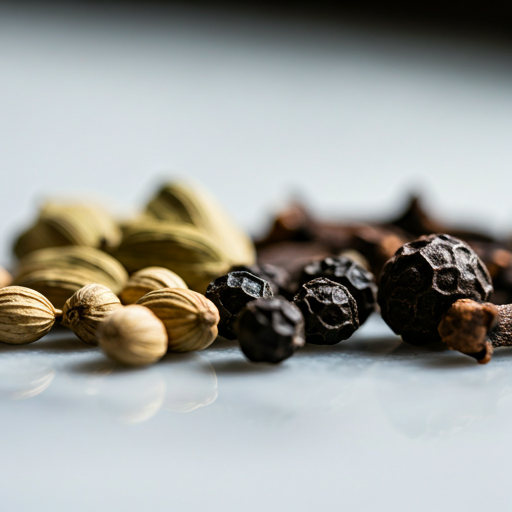Summary
Pakistani cuisine is rich in flavor, thanks to its aromatic herbs and spices. Discover the essential herbs and spices that define the unique taste of Pakistani dishes, along with their culinary and health benefits
Introduction
Pakistani cuisine owes its soul to its vibrant and aromatic herbs and spices. These ingredients are the essence of its traditional dishes, delivering unmatched depth and character to every meal. In this article, we’ll explore some must-try Pakistani herbs and spices, their culinary uses, and their benefits.
The Significance of Pakistani Herbs and Spices
Pakistani herbs are not just flavor enhancers; they represent centuries of cultural heritage and culinary artistry. From biryanis to curries, their influence is ubiquitous.

Table of Common Pakistani Herbs and Spices
| Herb/Spice | Flavor Profile | Culinary Uses | Health Benefits |
|---|---|---|---|
| Coriander | Earthy, citrusy | Curries, chutneys, garnishing | Aids digestion, rich in antioxidants |
| Cumin | Warm, nutty | Biryani, kebabs, spice blends | Improves digestion, boosts immunity |
| Turmeric | Warm, slightly bitter | Curries, rice dishes, marinades | Anti-inflammatory, promotes skin health |
| Fenugreek | Bitter, nutty | Parathas, pickles, curries | Lowers blood sugar, improves lactation |
| Mint | Fresh, cooling | Chutneys, drinks, garnishing | Eases indigestion, has calming properties |
| Cardamom | Sweet, floral | Desserts, tea, spice blends | Supports digestion, freshens breath |
| Cloves | Warm, pungent | Curries, masalas, rice dishes | Antiseptic properties, relieves tooth pain |
| Black Pepper | Pungent, slightly spicy | Marinades, spice rubs, soups | Improves metabolism, aids nutrient absorption |
| Garlic | Pungent, savory | Curries, stir-fries, bread | Reduces cholesterol, boosts immunity |
| Ginger | Warm, slightly sweet | Curries, tea, marinades | Relieves nausea, supports digestion |
Essential Herbs and Spices in Pakistani Cuisine
Coriander (Dhaniya)
Coriander is a staple in Pakistani cooking, used both as fresh leaves and ground seeds. Its citrusy undertones make it versatile for curries, chutneys, and marinades. Coriander is also known for its digestive benefits.
Cumin (Zeera)
Cumin seeds are dry roasted or used whole to add depth to dishes like biryani and kebabs. Its nutty and warm aroma is indispensable in spice blends.
Turmeric (Haldi)
Turmeric is revered for its health benefits and vibrant color. It’s an essential ingredient in curries, giving them a golden hue and earthy flavor.
Fenugreek (Methi)
Fenugreek leaves and seeds are widely used for their slightly bitter taste, perfect for parathas and lentil dishes. They’re also a common addition to pickles.
Mint (Pudina)
Mint leaves bring a refreshing twist to chutneys, salads, and drinks. Their cooling properties make them a favorite in the summer.
Cooking Tips with Pakistani Herbs and Spices
- Dry Roast Spices: Roasting whole spices intensifies their aroma and flavor.
- Grind Fresh: Always use freshly ground spices for optimal taste.
- Layering Flavors: Add spices in stages while cooking to create complex, rich flavors.
- Store Properly: Keep spices in airtight containers to preserve freshness.
Health Benefits of Pakistani Herbs and Spices
They aren’t just about flavor; they’re a powerhouse of health benefits. Turmeric combats inflammation, ginger soothes digestion, and fenugreek lowers cholesterol. Regular use of these ingredients can contribute to overall wellness.

FAQs
1. What are the most commonly used spices in Pakistani cuisine?
Some of the most popular spices include cumin, coriander, turmeric, and garam masala.
2. How can I store Pakistani herbs and spices for freshness?
Store them in cool, dry places in airtight containers, away from direct sunlight.
3. Are Pakistani spices healthy?
Yes, many Pakistani spices have significant health benefits, such as improving digestion and boosting immunity.
4. What dishes best showcase Pakistani herbs and spices?
Dishes like biryani, chicken karahi, and nihari are perfect examples of Pakistani cuisine’s rich spice profile.
5. Can I grow Pakistani herbs at home?
Yes, herbs like mint, coriander, and fenugreek are easy to grow in small spaces or kitchen gardens.
6. How do I balance spices in Pakistani recipes?
Use spices in moderation and taste frequently. Freshly grinding spices also ensures the best balance and flavor.
Conclusion
Pakistani spices are the heart and soul of the country’s cuisine. From their unique flavors to their health benefits, these ingredients make every dish unforgettable. Whether you’re a seasoned chef or a culinary enthusiast, experimenting with these spices will bring the authentic taste of Pakistan to your kitchen.
